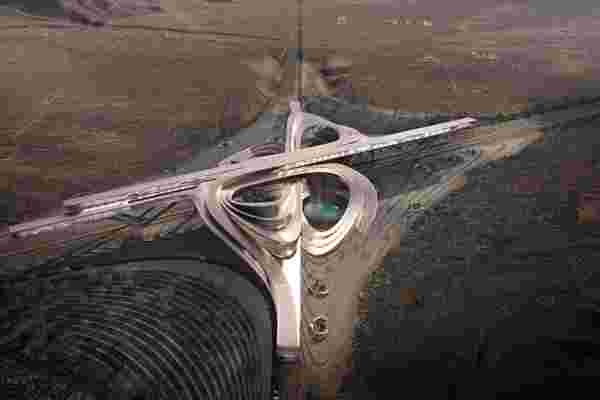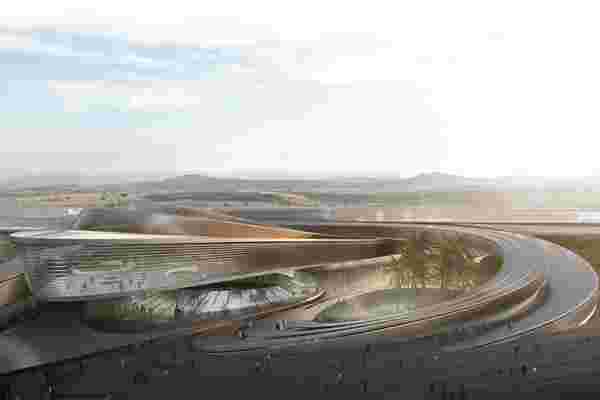
Last summer’s Young Architects Competitions (YAC) saw several amazing concept designs but this Hyperloop Desert Campus by Begum Aydinoglu of Pada Labs, Mariana Custodio Dos Santos, and Juan Carlos Naranjo is a part of the noteworthy 30 shortlisted ones. The challenge was about creating a building in the Mojave Desert, Nevada, that blends the future of transport while also standing as a “sanctuary of science.” Of course, it is an architectural competition so the structure had to visually “wow” the audience/judges.
The team kept in mind the current struggles we face as a planet and came up with a design that focused on environmental sustainability, resilience, and knowledge sharing. Hyperloop Desert Campus will be a building that houses multi-dimensional experiences. The team reimagined the Mojave Desert which is North America’s driest desert (and stretches across four states!) as an oasis in their proposal. The campus sports a stadium-like design with smooth curves bordering four courtyards that feature water elements to support the growth of tall palm trees and other greenery which will also allow for natural cooling and ventilation in the space. Hyperloop’s looping structure will have solar panel farms installed on each of its sides to generate renewable energy that can support the campus while the four courtyards will be designed to facilitate rainwater collection and greywater recycling.
“The symbiosis between the rough landscape and the iconic technology, helps The Hyperloop Desert Campus find its form. The building was designed to seamlessly rise from the desert ground of Nevada…the building’s design spirals up – inspired by the speed of travel – large corridors loop around these Oasis, crossing and interchanging levels, resembling complex interchange high-ways in form and function,” says the trio. 2020 taught us all a lot about resilience and that is the core of Hyperloop Desert Campus as well and will be seen in the form of inclusive knowledge sharing with educational tours, multiple technical cores that establish a fail-safe emergency system, and built-in expandability with adaptable interiors to allow for flexible future growth.
Designers: Mariana Cabugueira, Begum Aydinoglu and Juan Carlos Naranjo
